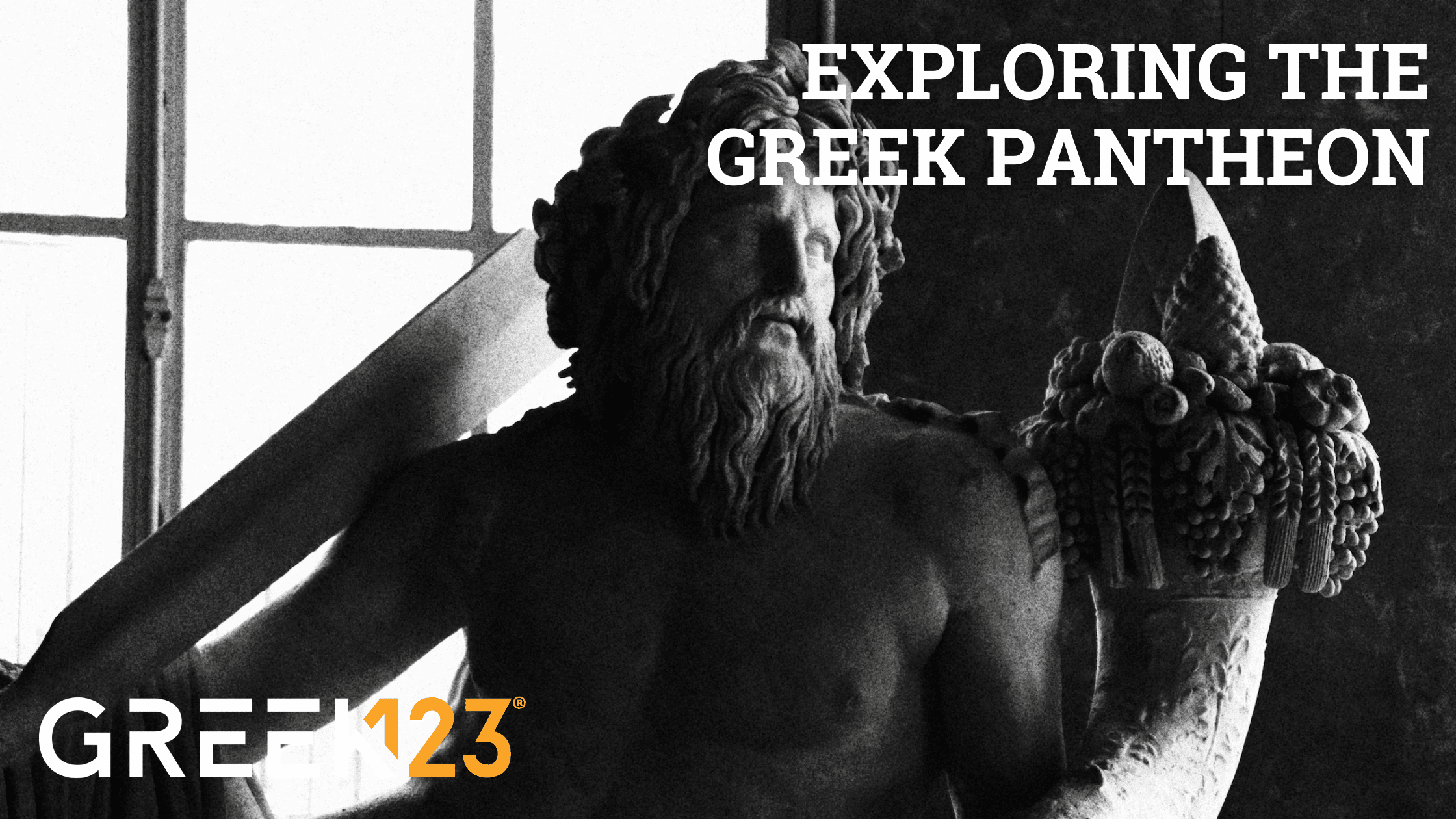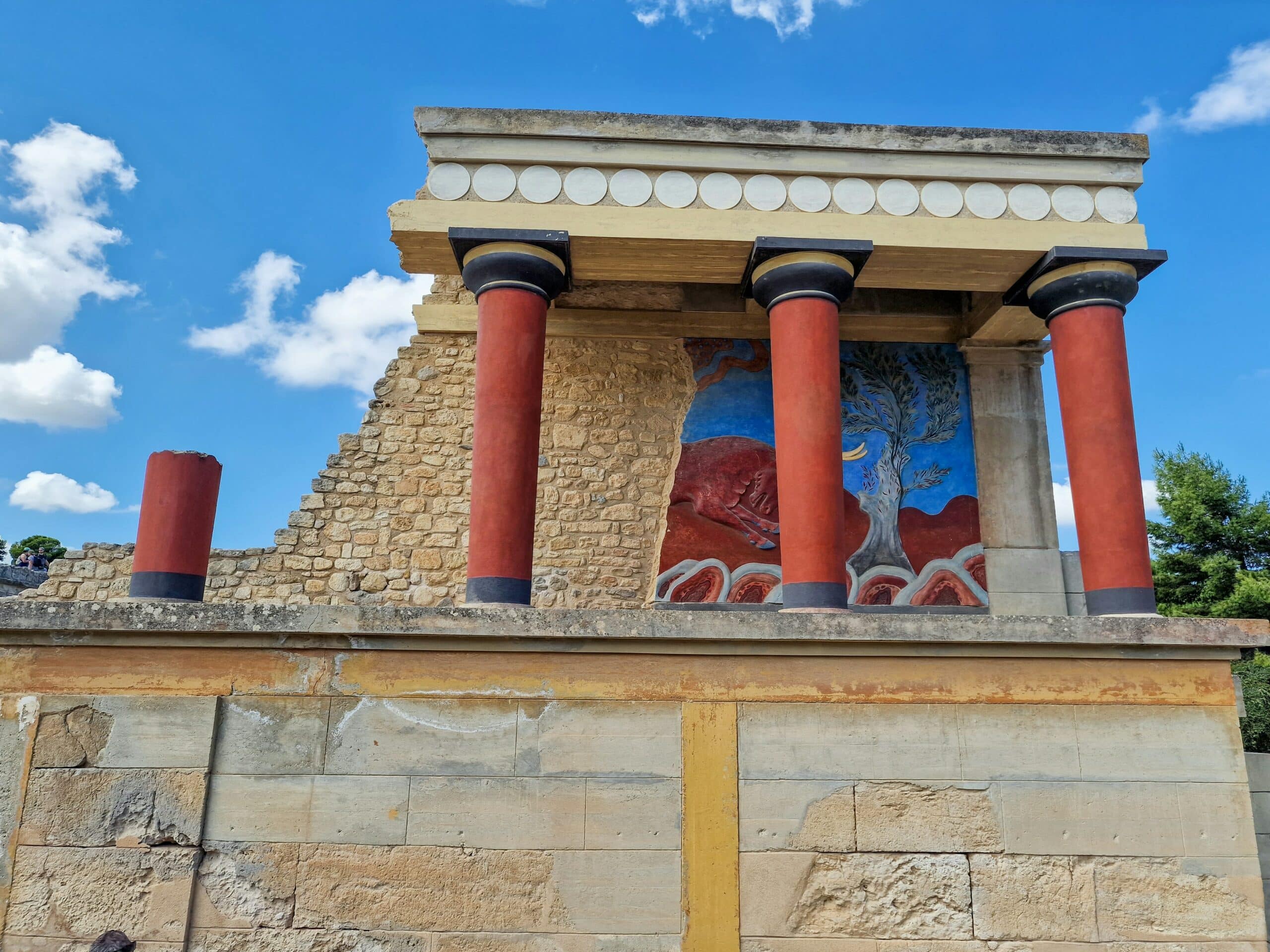
Exploring the Greek Pantheon: Gods and Goddesses of Ancient Greece
The Greek Pantheon consists of twelve Olympians, each with their own distinct personalities, powers, and realms of influence. It has left an indelible mark on history, literature, and art. In this exploration, we will embark on a journey through the divine tapestry of Greek mythology, shedding light on the iconic figures that shaped the ancient world. From mighty Zeus, the thunderbolt-wielding king of the gods, to wise Athena, the goddess of wisdom and warfare, continue reading more as we unravel the enchanting stories and significance behind the deities that once held sway over the hearts and minds of the ancient Greeks.
Meet Zeus, the King of Gods
At the celestial summit of Mount Olympus, Zeus, the paramount deity in the Greek pantheon, presides as the unrivaled King of Gods. Cloaked in the majesty of the heavens, Zeus commands both the celestial realms and the earthly domain. In his mighty grasp, thunderbolts crackle, symbolizing his divine authority and power. The myths surrounding Zeus unveil a narrative of unparalleled might, depicting epic clashes with the titans, the primordial forces that once ruled the cosmos.
These confrontations stand as testament to Zeus’s unyielding strength and his pivotal role in establishing a new cosmic order. Yet, amid his formidable presence, Zeus is intricately entwined in a complex web of divine relationships—paternal bonds, sibling rivalries, and romantic entanglements that add layers of depth to the character of the King of Gods. The tales of Zeus beckon us into a realm where celestial supremacy and familial dynamics converge, offering a glimpse into the multifaceted nature of this commanding deity.
Hera, Queen of Olympus
Standing alongside Zeus is Hera, the queen of Olympus and sister to the mighty king. The myths surrounding Hera offer a nuanced exploration of her role in the divine drama, delving into the complexities of matrimony, the challenges of divine jealousy, and her enduring influence that extends beyond the regal confines of Olympus. Hera emerges as a figure of strength, wisdom, and regal grace, able to shape destinies with a potent blend of maternal care and unwavering authority.
Athena, the Goddess of Wisdom
Athena, the goddess of wisdom and strategic warfare, emerges as a compelling figure in the tapestry of Greek mythology. Born fully armored from the forehead of her father Zeus, Athena’s origin story reflects her unique and formidable nature. Her birth from the head of Zeus symbolizes not only her unparalleled intellect but also her strategic prowess, emphasizing a cerebral approach to conflict.
Athena’s myths invite us to journey through tales that showcase her unparalleled wisdom, such as the creation of the olive tree—a gift to humanity that symbolizes peace, prosperity, and the fruits of civilization. In the epic narratives of the Trojan War, Athena’s strategic acumen shines brightly. From guiding mortal heroes to influencing the outcomes of battles, Athena’s presence is woven into the fabric of this legendary conflict, revealing her role as a wise strategist and protector of those who seek her counsel.
Poseidon, God of the Seas
Poseidon, the formidable god who commands the oceans, earthquakes, and horses. The myths surrounding Poseidon delve into the creation of his mighty trident, the origin of horses, and his notable conflicts, including the iconic quarrel with Athena over the city of Athens. Poseidon’s influence extends beyond the maritime realm, shaping the natural world and influencing epic tales of maritime adventures that capture the essence of ancient Greek storytelling.
Aphrodite, Goddess of Love
Aphrodite, the beguiling Goddess of love and beauty, graces the pantheon of Greek deities with an aura of enchantment. Born from the sea foam, Aphrodite captivates both gods and mortals, transcending the boundaries of mere beauty to embody the essence of love in all its forms. The myths surrounding Aphrodite weave tales of passion, romance, and divine mischief. As the goddess responsible for kindling the flames of love, her influence extends across the realms of both mortals and immortals.
Within the narratives of ancient Greece, Aphrodite’s entanglements with other deities and mortals evoke both admiration and caution. The story of her connection to Ares, the god of war, hints at the intersection of love and conflict. Additionally, her role in the tragic love affair of Psyche and Eros unveils the complexities of love’s trials and tribulations.
Hermes, the Swift Messenger
Hermes, the mischievous and swift-footed messenger of the gods, brings a dynamic energy to the Greek pantheon. Known for his cunning and charm, Hermes is a multifaceted deity, guiding souls to the underworld and inventing the lyre, symbolizing both transition and artistic expression. His playful demeanor and quick wit make him a beloved figure, bridging the gap between the divine and mortal realms.
Hades, God of the Underworld
In the shadowy depths of the Greek cosmos resides Hades, the stoic and enigmatic lord of the underworld. Governed by a sense of duty, Hades presides over the realm of the dead with an impartial hand. Despite his association with death, Hades is a complex figure, intricately connected to the cycle of life. The myth of his union with Persephone reflects themes of rebirth and the eternal dance between light and darkness.
Apollo, the God of Light
Apollo, the radiant and multi-talented god of light, embodies the ideals of youthful beauty and artistic excellence. As the twin brother of Artemis, Apollo is associated with the sun, music, prophecy, and healing. His presence at Delphi, where he delivers oracles, symbolizes the interconnectedness of divine foresight and human destiny. Apollo’s multifaceted nature reflects the harmony sought by the ancient Greeks in the pursuit of physical and artistic perfection.
Ares, the God of War
Ares, the formidable god of war, emanates a powerful and often tumultuous energy within the revered pantheon. Revered as a force that both protects and imperils, Ares embodies the brutal aspects of conflict. His love affair with Aphrodite illustrates the interplay between love and war, showcasing the complexity of human emotions in the face of battle. Ares stands as a reminder of the relentless and unpredictable nature of warfare in the ancient Greek worldview.
Artemis, the Huntress of the Moon
Artemis, the independent and fierce huntress, commands the moonlit wilderness with unmatched prowess. As Apollo’s twin sister, she symbolizes the untamed aspects of nature and the hunt. Artemis’s dual role as protector of young women and the wilderness reflects a nuanced blend of ferocity and nurturing, embodying the delicate balance between the untamed and the domesticated.
Demeter, the Nurturing Earth Mother
Demeter, the nurturing Earth mother, presides over the fertility of the land and the cycles of agriculture. Her sorrow over the abduction of her daughter, Persephone, mirrors the seasonal changes, giving rise to the myth of the changing seasons. Demeter’s maternal instincts and connection to the earth highlight the symbiotic relationship between the goddess and the bountiful harvest.
Dionysus, the God of Wine and Revelry
Dionysus, the vibrant and exuberant god of wine, revelry, and fertility, brings a spirit of ecstasy and liberation to the pantheon. His celebrations, known as the Dionysian mysteries, are marked by passionate revelry and a release from societal constraints. Dionysus’s transformative and liberating influence reflects the Greeks’ recognition of the dual nature of both chaos and order in the pursuit of ecstasy and divine connection.
Hephaestus, the Skilled Craftsman
Hephaestus, the skilled blacksmith and craftsman of the gods, brings an element of creativity and ingenuity to the pantheon. Despite his physical challenges, Hephaestus crafts divine artifacts and inventions, symbolizing the triumph of intellect over physical limitations. His role as the forger of weapons and armor for the gods underscores the duality of creation and destruction inherent in craftsmanship.
Hestia, the Hearth and Home
Hestia, the gentle and nurturing goddess of the hearth and home, embodies the sacred center of domestic life. Revered as the keeper of the eternal flame, Hestia symbolizes familial warmth, unity, and hospitality. Her tranquil presence within the pantheon provides a counterbalance to the more dynamic and tempestuous forces at play among the other gods and goddesses.
Persephone, Queen of the Underworld
Persephone, the queen of the underworld, holds a central role in the cycle of life, death, and rebirth. Abducted by Hades, Persephone’s association with the changing seasons mirrors the ebb and flow of life’s rhythms. Her dual role as both the innocent maiden and the powerful queen of the underworld encapsulates the profound transformations inherent in the cyclical nature of existence.
In the end, the Greek pantheon stands as a testament to the enduring human quest for understanding and connection. It invites us to explore the depths of our own humanity, while resonating with the perennial themes of creation, destruction, and the eternal yearning for a higher understanding of our place in the cosmos.
As we conclude our journey through the divine realms of Greece, we carry with us the echoes of these immortal tales, forever woven into the fabric of our cultural consciousness.
Related


